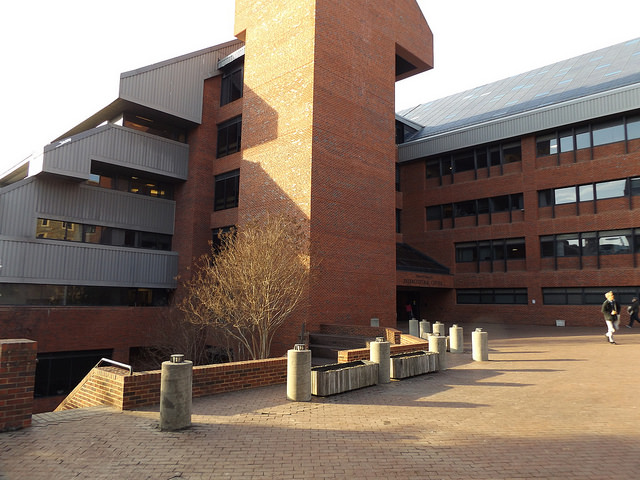The unexpected outcome of the 2016 presidential election has resonated throughout the Georgetown community. The days after the election of Donald Trump saw many politically neutral initiatives to help students cope with the aftermath of a long and vitriolic political campaign. That being said, the university has also witnessed several explicitly partisan displays of support for and opposition to the new President-elect.
The university tradition of students visiting the White House on election night took place during the early hours of Nov. 9. “There was definitely a sense of sadness and disbelief” said Neil Filosa (COL ‘18), who was among the students who visited the presidential residence. Though Filosa did not feel unsafe at the time, “There was definitely a lot of tension in the air.”
On Nov. 9, the day after the election, several professors decided to cancel class. “In addition to myself, I have several students who are from minority, marginalized groups in my class,” wrote Debra Sivigny, an assistant professor in the department of performing arts, in an email to the Voice. “I wanted to give them a break to exercise some self-care, but also to be with each other outside the classroom regimen for at least a few more hours. I, admittedly, also needed a moment to catch my breath.”
Various student community centers and resources across campus made themselves open for students to visit. The Georgetown University Women’s Center held open coffee hours. According to Center Director Laura Kovach, this open session was only organized post-election, once the outcome was clear.
The Black House co-sponsored and hosted an event called “Envisioning Our Liberation: Pursuing Healing on College Campuses,” on the day after the election. The event was focused on the development of healing spaces on college campuses for students of color, and was not explicitly supposed to relate to the election, said Shola Powell (COL ‘17). “ In light of the election results, however, the event did help to create a much needed space for decompression, reflection, and healing,” Powell wrote in an email.
The days following the election were not without explicitly partisan actions on campus. Kory Stuer (COL ‘19), reported seeing the message “Build the wall” written in chalk on a wall of the ICC at approximately 7:30 PM on Nov. 10.
On Nov. 11, Howard University Law students organized a demonstration called Bend Towards Justice, which involved protesting outside both the White House and the new Trump hotel. “Real people can be very very intensely hurt by this presidency, and I can’t not pay attention to that,” said Khadija Khan (COL, ‘17) who participated in the event.
Andrew Bennett, a professor in the government department, has organized a protest march against the President-elect’s appointment of Myron Ebell to head the administration’s EPA transition team. “Ebell himself has no training or graduate degree in climate science (or any kind of science), economics, or law. He has never worked in the EPA. And yet he had the temerity not only to challenge the best climate scientists, he questioned Pope Francis’s standing to speak out on climate issues,” Bennett wrote in an email. “So I decided I could not look my students, or my own children, in the eye if I didn’t do everything I could to prevent Ebell and other climate change deniers from taking up positions in environmental agencies in a Trump administration.” The protest march from Georgetown to Ebell’s office on L street is scheduled to begin at 2:00 PM on Nov. 18.





